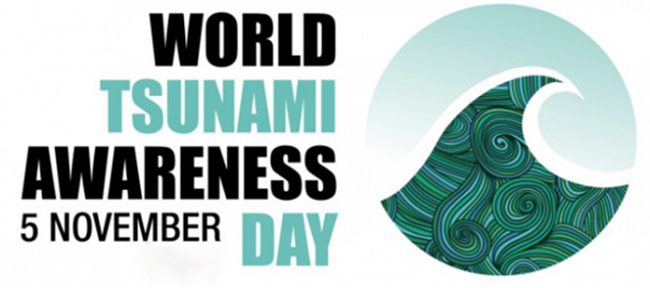Is Nigeria At Risk Of A Tsunami? by Chidiebere Chima
Today November 5, 2019, the world marks the international day for Tsunami awareness. One of the major problems faced by humanity today despite having recorded huge scientific and technological advancement is natural disasters.
As much humans try to put everything under control, it seems there is an element in nature that sometimes defies control. As such, we constantly need to educate ourselves on these natural disasters and how best we can manage our environment.
It is quite evident that the world cannot deny the impact made by this catastrophic event whenever it happens. Between the years 2000 and 2019 the world has witnessed 18 Tsunamis which had a lot of negative impacts on the socio-economic wellbeing of the people affected.
Available statistical records show that many people are usually reported missing, injured and dead whenever this natural event occurs.
According to Wikipedia, Tsunami is a series of waves in a water body caused by the displacement of a large volume of water, generally in an ocean or a large lake.
Earthquakes, volcanic eruptions and other underwater explosions (including detonations, landslides, glacier calvings, meteorite impacts, and other disturbances) above or below water all have the potential to generate a Tsunami.
Nigeria can be said to be lucky when it comes to natural disasters but the recent climatic changes it has witnessed is a pointer to guard ourselves against unforeseen disasters.
According to an article published by Mail & Guardian in 2005, scientists in Nigeria have discounted warnings that the West African coastline risks a Tsunami but stressed the need to plan for other extreme events.
According to the Science and Development Network, which deposited that “the only area where we could probably think of a natural disaster is in the western boundary with Cameroon, where there is an active volcanic region.”
The Nigerian government must be proactive by developing early warning systems to face this or any other natural disaster.
Most of human efforts with regards to Tsunami management has been reactive. We must begin to adopt measures that are proactive. This includes, but not limited to promoting a culture that discourages deforestation, building along coastlines and reclaiming land, among others.
According to RAP publication, 2007, “there is considerable evidence that coastal forests can reduce the force, depth and velocity of a tsunami, lessening damage to property and reducing the loss of life.”
Though research has shown that Nigeria is not likely to witness Tsunamis, the emergency agencies of the government which in this case, include Nigeria National Emergency Management Agency (NEMA), Nigerian National Space Research and Development Agency (NASRDA), Federal Fire Service, etc. should also be well equipped to handle emergencies should the event occur.
There should also be a proper handshake between various government agencies involved in the management of the environment and disaster management. There should be periodical monitoring in the face of global climatic changes to ensure that information on the likelihood of Tsunami occurrence is updated, and Nigerians properly informed.




